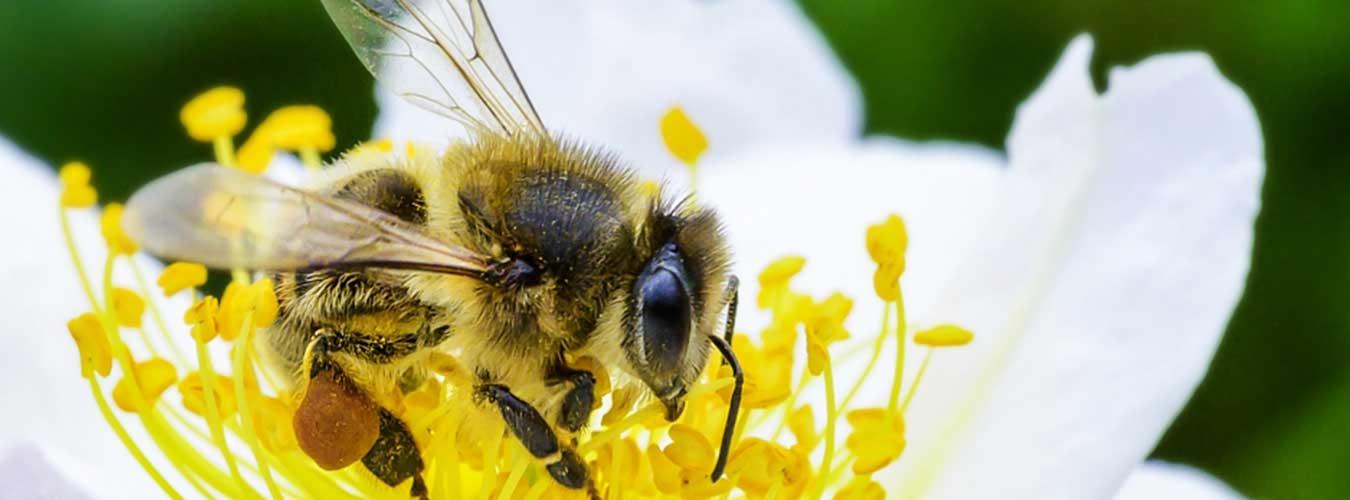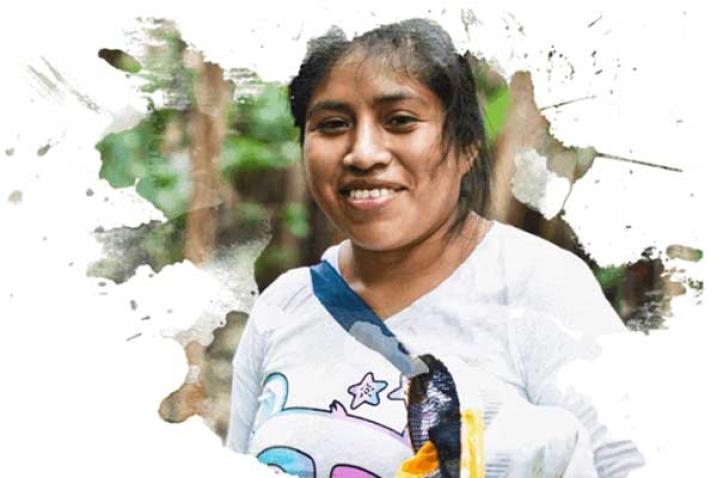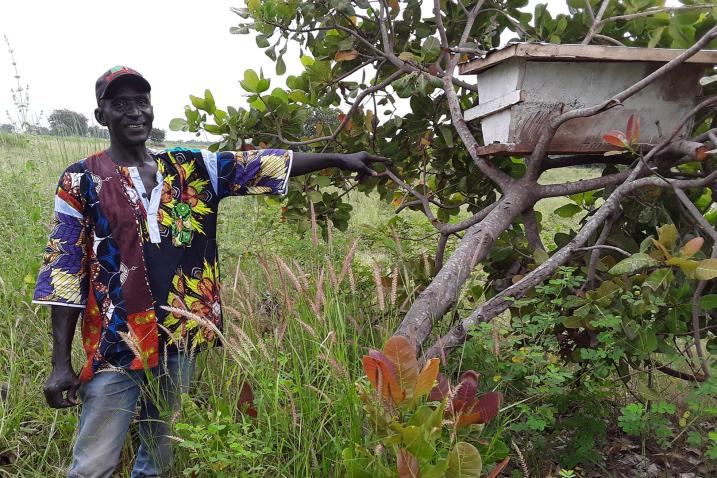We all depend on the survival of bees
Bees and other pollinators, such as butterflies, bats and hummingbirds, are increasingly under threat from human activities.
Pollination is, however, a fundamental process for the survival of our ecosystems. Nearly 90% of the world’s wild flowering plant species depend, entirely, or at least in part, on animal pollination, along with more than 75% of the world’s food crops and 35% of global agricultural land. Not only do pollinators contribute directly to food security, but they are key to conserving biodiversity.
To raise awareness of the importance of pollinators, the threats they face and their contribution to sustainable development, the UN designated 20 May as World Bee Day.
The goal is to strengthen measures aimed at protecting bees and other pollinators, which would significantly contribute to solving problems related to the global food supply and eliminate hunger in developing countries.
We all depend on pollinators and it is, therefore, crucial to monitor their decline and halt the loss of biodiversity.
Bee engaged in pollinator-friendly agricultural production
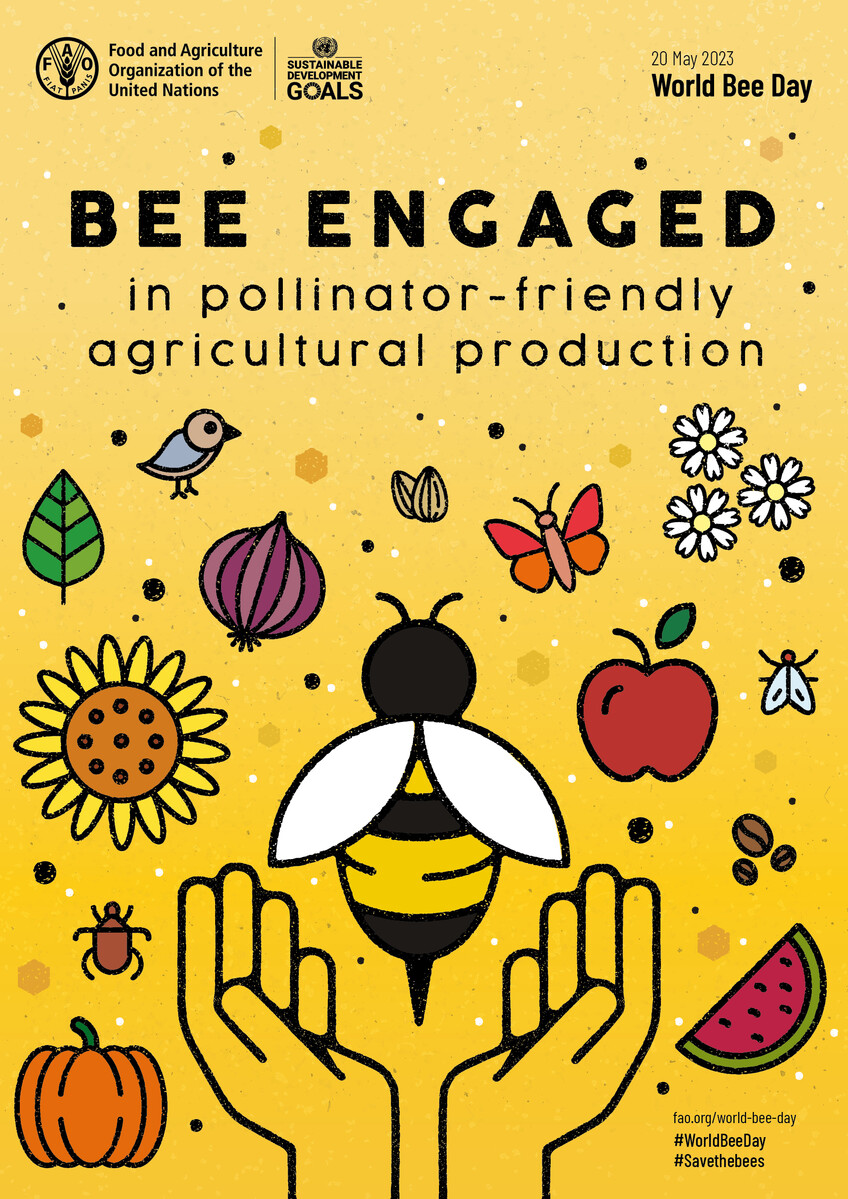 19 May 2023, 10:00–11:30 CEST
19 May 2023, 10:00–11:30 CEST
Agenda (PDF)| Register | Webcast
Bees and other pollinators are fundamental for the health of ecosystems and food security. They help maintain biodiversity and ensure the production of nutritious food. However, intensive monoculture production and improper use of pesticides pose serious threats to pollinators by reducing their access to food and nesting sites, exposing them to harmful chemicals, and weakening their immune systems.
Under the theme “Bee engaged in pollinator-friendly agricultural production”, World Bee Day 2023 calls for global action to support pollinator-friendly agricultural production and highlights the importance of protecting bees and other pollinators, particularly through evidence-based agricultural production practices.
The global World Bee Day ceremony, which will be held in hybrid format at the FAO headquarters on Friday, 19 May, will be an opportunity to raise awareness of the importance of adopting pollinator-friendly agricultural production practices to protect bees and other pollinators, while contributing to the resilience, sustainability and efficiency of agrifood systems.
22 May 2023, 1:15 PM - 2:30 PM (EDT)
New York, UNHQ Conference Room 9
Register | Webcast
The New York-based event aims at increasing awareness of bees and other pollinators and their contribution to environmental and social resilience. The event will showcase innovative pollinator projects and encourage an exchange of good practices of supporting communities.
Find out more about how you can promote #WorldBeeDay by reading FAO's Get involved guide.
Do you know all the different pollinators?

We need to act now
Bees are under threat. Present species extinction rates are 100 to 1,000 times higher than normal due to human impacts. Close to 35 percent of invertebrate pollinators, particularly bees and butterflies, and about 17 percent of vertebrate pollinators, such as bats, face extinction globally.
If this trend continues, nutritious crops, such as fruits, nuts and many vegetable crops will be substituted increasingly by staple crops like rice, corn and potatoes, eventually resulting in an imbalanced diet.
Intensive farming practices, land-use change, mono-cropping, pesticides and higher temperatures associated with climate change all pose problems for bee populations and, by extension, the quality of food we grow.
Recognizing the dimensions of the pollination crisis and its links to biodiversity and human livelihoods, the Convention on Biological Diversity has made the conservation and sustainable use of pollinators a priority. In 2000, the International Pollinator Initiative (IPI) was established (COP decision V/5, section II) at the Fifth Conference of Parties (COP V) as a cross-cutting initiative to promote the sustainable use of pollinators in agriculture and related ecosystems. Its main goals are monitoring pollinators decline, addressing the lack of taxonomic information on pollinators, assessing the economic value of pollination and the economic impact of the decline of pollination services and protect pollinator diversity.
Along with coordinating the International Pollinator Initiative (IPI), the FAO also provides technical assistance to countries on issues ranging from queen breeding to artificial insemination to sustainable solutions for honey production and export marketing.
Discover other initiatives, national and international, dedicated to the protection of pollinators.
>> Facilitated by FAO
How can we do more?
Individually by:
- planting a diverse set of native plants, which flower at different times of the year;
- buying raw honey from local farmers;
- buying products from sustainable agricultural practices;
- avoiding pesticides, fungicides or herbicides in our gardens;
- protecting wild bee colonies when possible;
- sponsoring a hive;
- making a bee water fountain by leaving a water bowl outside;
- helping sustaining forest ecosystems;
- raising awareness around us by sharing this information within our communities and networks; The decline of bees affects us all!
As beekeepers, or farmers by:
- reducing, or changing the usage of pesticides;
- diversifying crops as much as possible, and/or planting attractive crops around the field;
- creating hedgerows.
As governments and decision-makers by:
- strengthening the participation of local communities in decision-making, in particular that of indigenous people, who know and respect ecosystems and biodiversity;
- enforcing strategic measures, including monetary incentives to help change;
- increasing collaboration between national and international organizations, organizations and academic and research networks to monitor and evaluate pollination services.
Watch
Resources
Documents
- General Assembly resolution A/RES/72/211 (draft A/72/PV.74)
- Decision adopted by the Conference of the Parties to the Convention on biological diversity, regarding the Conservation and sustainable use of pollinators (2018, PDF)
- The International Initiative for the conservation and sustainable use of pollinators (COP 5 Decision V/5)
Publications
- Protecting pollinators from pesticides – Urgent need for action (2022)
- Protection of honeybees and other pollinators: one global study (2021)
- The state of the world's biodiversity for food and agriculture (2019)
- Why Bees Matter - The importance of bees and other pollinators for food and agriculture (2018, PDF)
- The State of Food Security and Nutrition in the World (2020)
More information
- World Bee Day (FAO)
- Publications by the FAO on the importance of pollinators
- The Sustainable Development Goals
- FAO's Global Action on Pollination Services for Sustainable Agriculture
- Technologies and Practices for Small Agricultural Producers (FAO)
- UNDP: "Buzzing with life" - or all you need to know about bees
- The power of pollinators: why more bees means better food
- Declining bee populations pose threat to global food security and nutrition
- Honey production in Guatemala: sweet success
- FAO's Global Action on Pollination Services for Sustainable Agriculture
- Infographics by FAO
- TARGET: Zero Hunger - The Power of Pollinators: Why More Bees Means Better Food
- IOM: Syrian Beekeeper Extracts Honey and Hope from Bees in Turkey
It's not just about the honey
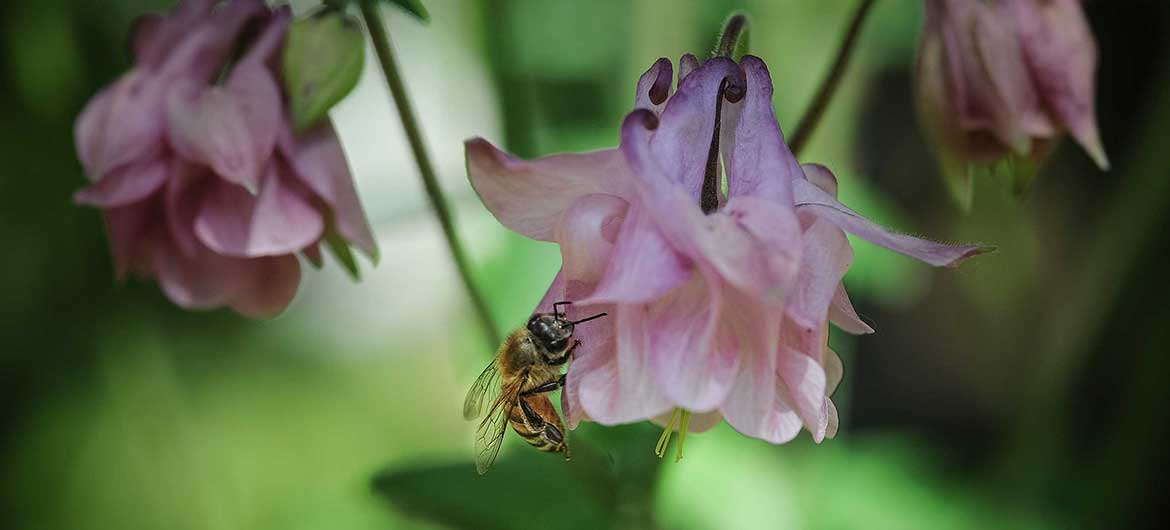
What would a world without bees look like? Listen to FAO’s Abram Bicksler about the importance of pollinators for ensuring the world's food security.
FAO Stories
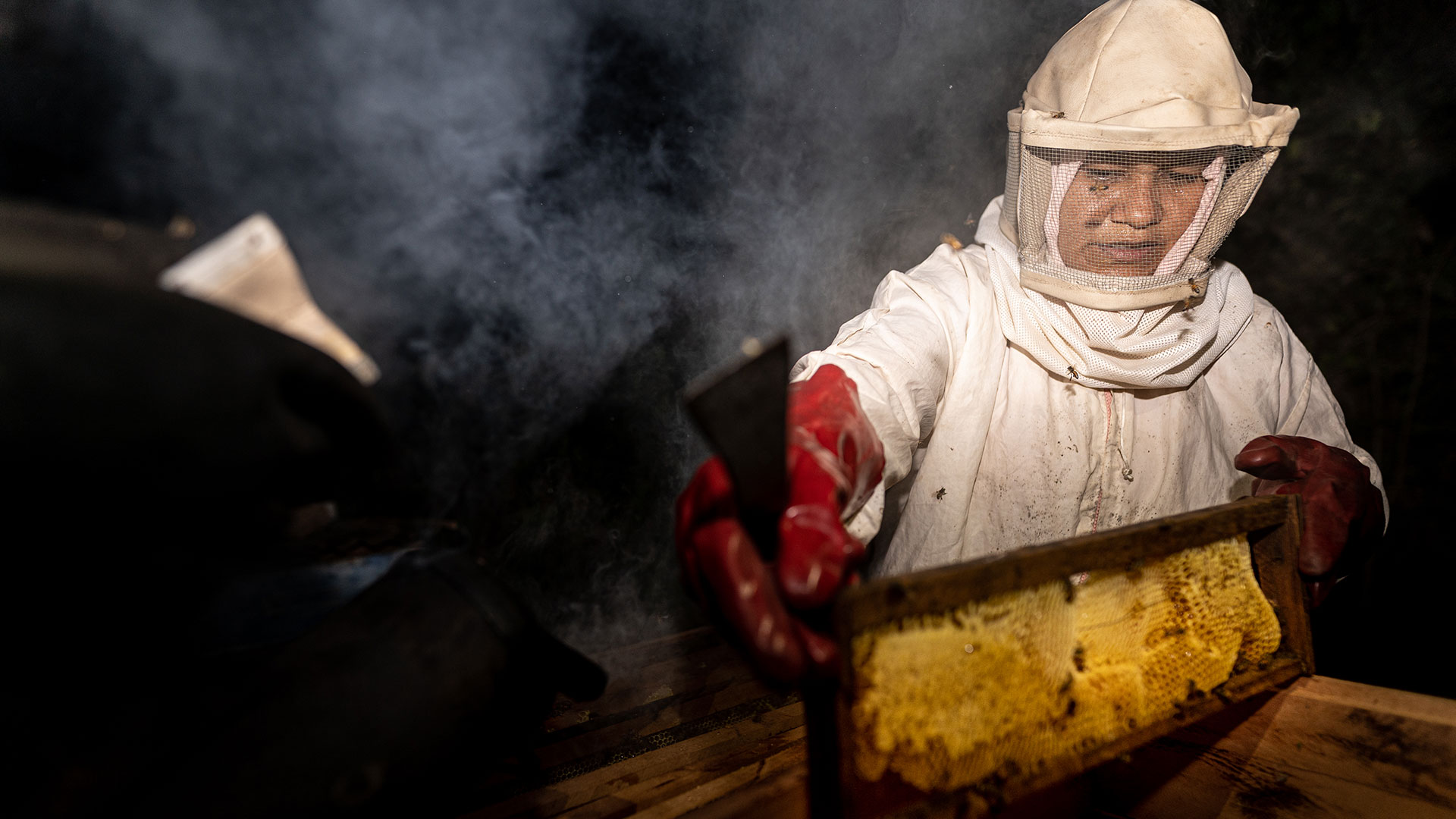
Read FAO success stories from around the world on how bees and beekeeping contribute to livelihoods and sustainable development.
Why 20 May?
20 May coincides with the birthday of Anton Janša, who in the 18th century pioneered modern beekeeping techniques in his native Slovenia and praised the bees for their ability to work so hard, while needing so little attention.

Learn all about honey and all the different products a bee hive can give you!

